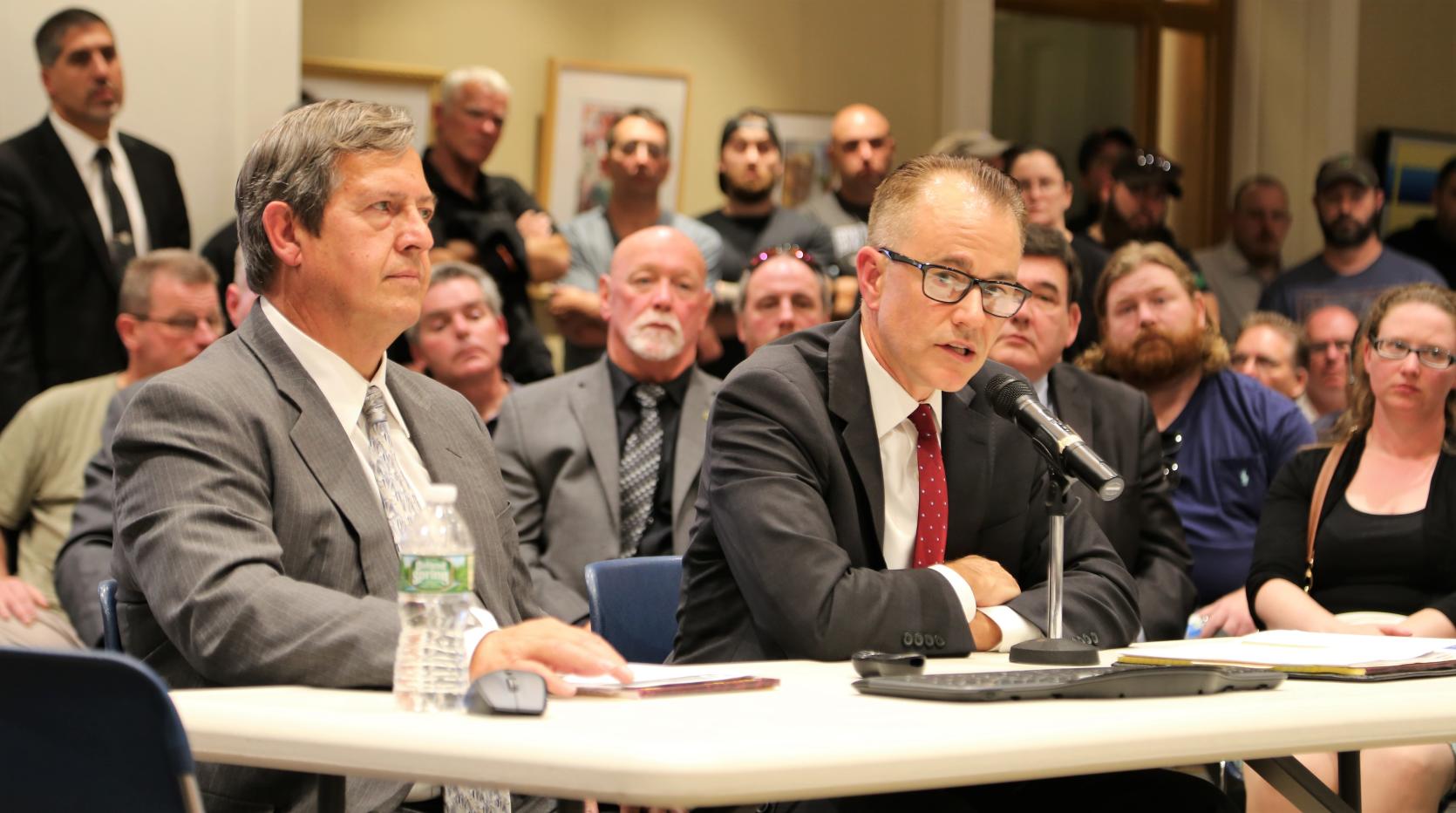- Office of State Auditor Suzanne M. Bump
Media Contact
Mike Wessler, Communications Director

Boston — Good afternoon Chairwoman O’Connor Ives, Vice Chairman Welch, and members of the Committee. My name is Timothy Dooling, Deputy Auditor and General Counsel in the Office of State Auditor Suzanne M. Bump, and I testify on her behalf today. I am joined by our First Deputy Auditor Kenneth Woodland.
I testify today not with the intention of weighing in on the merits of the privatization efforts currently on-going at the MBTA, or the quality of data used by the MBTA to pursue these privatizations. Since 1993, the Office of the State Auditor has been able to answer questions such as these, and for every other agency in state government, it still can. However, since July of 2015 for the MBTA we cannot, and this is the very reason this hearing is being held today—an essential oversight and accountability function has been disabled.
Instead, I am here to discuss the important role of the Taxpayer Protection Act in navigating debates such as this one today, and ensuring that they are guided by fact-based information, rather than political ideology.
The Taxpayer Protection Act was passed at a time of similar confusion regarding the privatization of state services. It was born of a desire to ensure that before state services are privatized, proposals undergo independent scrutiny to make certain the decision is made in the best interests of taxpayers.
Since 1993, the Office of the State Auditor has been tasked with providing this scrutiny. Once an agency submits its privatization petition to our office, M.G.L. c. 7, §55(a) (the privatization law) allows 30 business days for our auditors to complete their review, which may be extended an additional 30 business days (60 days total).
When evaluating proposals to privatize services, we look at three primary factors:
- Will privatization of a service be less costly for taxpayers?
- Will privatization provide a quality of service that is at least equal to the level currently being provided by state employees? And,
- Does the designated bidder have a satisfactory record of complying with Massachusetts laws and regulations?
If the answer to these questions is, “Yes,” then the proposal is approved by our office. The Taxpayer Protection Act ensures that before an agency privatizes a state service, it must first make a business case for doing so that can withstand independent scrutiny. This is standard practice in the private sector and is a best practice that should be applied to government as well. The Taxpayer Protection Act forces government agencies, unaccustomed to thinking like businesses, to explore alternatives to their current model and to base decisions on costs, desired outcomes, competitive bidding, and value.
When an agency demonstrates that a private company can perform a government function at a lower cost without compromising quality, that privatization plan is approved. Since privatization means that somebody is going to make a profit off a state contract, it is essential that the notion of government accountability is embedded in the decision-making process. It is this business case that has been missing from the current debate surrounding MBTA privatizations.
Since July 2015, and lasting for three years until July 2018, the MBTA has not been subject to the privatization law. Chapter 46 of the Acts of 2015, §196 states, in part, that any contracts for goods & services executed by the MBTA shall not be subject to M.G.L. c. 7, §§52-55 (the privatization law). Presently, there is no independent arbiter to ensure – at the outset – that these decisions are based on facts and data, rather than ideology. Without this independent arbiter and the accountability that comes with it, the interests of the taxpayers are lost in the overwhelming cloud of politics.
In closing, we hope that as you make decisions related to these and other privatization proposals, you keep in mind that the most common problems our office identifies—be they in an audit of a state agency or an evaluation of a privatization proposal—are problems related to management’s failure to make long-term plans, and prioritize effective use of resources. When the decision to privatize a state service is made, it is the frontline workers who lose their jobs, while the management deficiencies that caused the problems are often transferred to a private contract, and taxpayers remain on the hook.
On behalf of Auditor Bump, thank you for the opportunity to testify today, and as always our office stands ready to serve as a resource on this or any other issue.